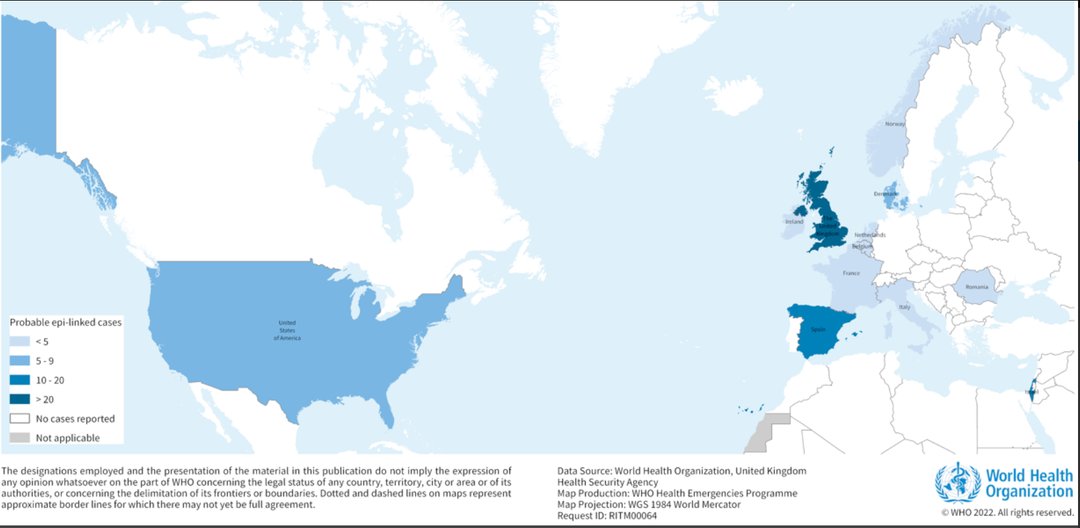內容目錄
Since the publication of WHO news on acute hepatitis of unknown cause in children on April 15, 2022, there have been further reports of acute hepatitis of unknown cause in young children across countries.

According to WHO’s official website, as of April 21, many countries have reported at least 169 cases of acute hepatitis of unknown origin , adenovirus was found in at least 74 cases. The UK was the first to report a significant increase in associated acute hepatitis cases, usually in healthy, young children. About 17 of the sick children (about 10%) required liver transplantation, and at least one death was reported.

Cause investigation
Adenovirus. The WHO said that adenoviruses are currently regarded as a hypothesis for the cause, but this cannot fully explain the severity of the clinical symptoms.
About Adenovirus
Answer
Adenovirus is a common pathogen that usually causes a self-limiting infection. Adenoviruses spread from person to person and most commonly cause respiratory illnesses, but depending on the type, they can also cause other illnesses such as gastroenteritis, conjunctivitis (pink eye), and cystitis. There are more than 50 different adenoviruses that can cause infection in humans.
Adenovirus 41 typically presents with diarrhea, vomiting, and fever, often with respiratory symptoms. Adenovirus 41 has not been reported to cause hepatitis in healthy children, although there have been case reports of adenovirus-induced hepatitis in immunocompromised children.
Pathogenic factors requiring further study include:
Infection of young children with adenovirus after adenovirus prevalence decreased during the epidemic
A new type of adenovirus may appear;
co-infection of adenovirus and new coronavirus;
strong>
Other infectious and non-infectious causes.
Currently it is not believed to be related to the side effects of the new crown vaccine, because the vast majority of sick children are not vaccinated against the new crown vaccine.
News from countries
On the 25th local time, the British Health and Safety Agency said that adenovirus type 41 appeared to be the most likely cause of the disease.
On the 26th, Japan’s Ministry of Health, Labour and Welfare said that a child under the age of 16 in the country was suspected of having symptoms of acute hepatitis of unknown origin previously found in many places in Europe and the United States.
The Greek Public Health Organization issued a statement instructing clinicians to be vigilant and vigilant in children under 16 with hepatitis symptoms of no clear etiology for early diagnosis and treatment.
WHO recommends
common preventive measures for adenovirus and other common infections include regular handwashing and respiratory hygiene;
local agencies should clarify prevalence among cases medical contacts, review of temporal and geographic information about cases and potential risk factors for close contacts;
For ill cases, blood testing should be performed (preliminary experience suggests that whole blood is more sensitive than serum), Serum, urine, stool, and respiratory samples, as well as liver biopsy samples (if available), were retained and further viral characterization, including sequencing, was conducted to thoroughly investigate other infectious and non-infectious etiologies.
Based on currently available information, WHO does not recommend any restrictions on travel and/or trade with the UK or other countries where cases have been detected.